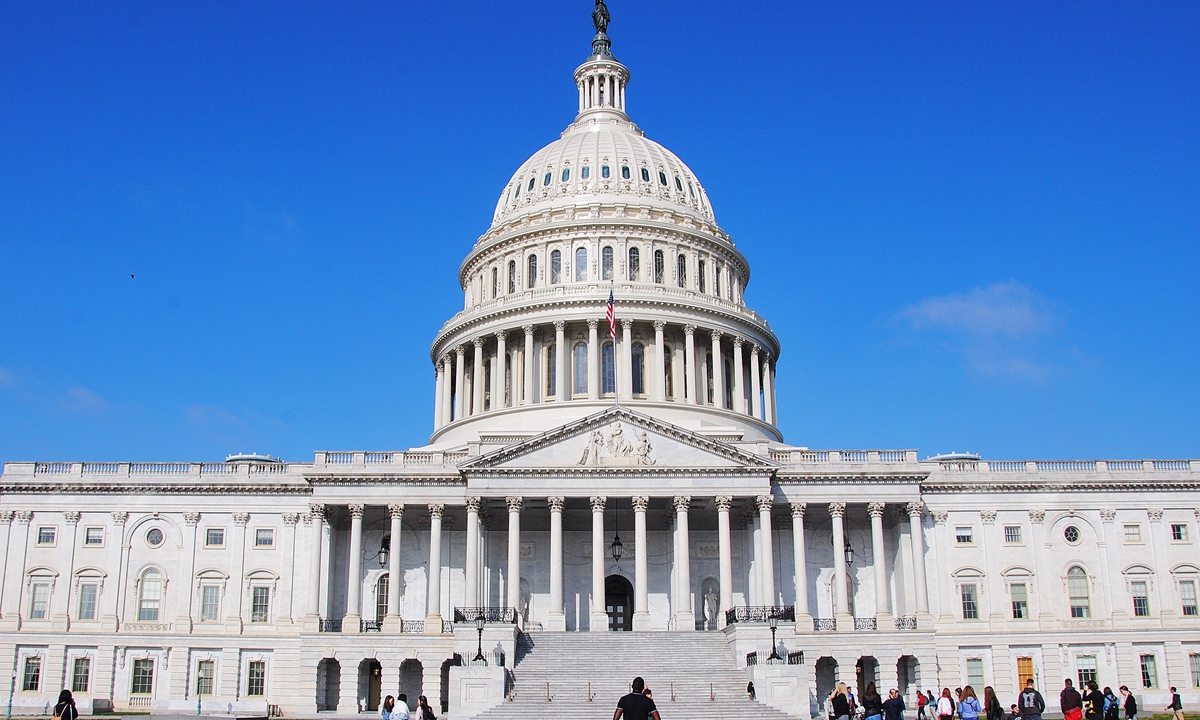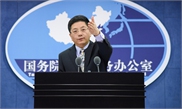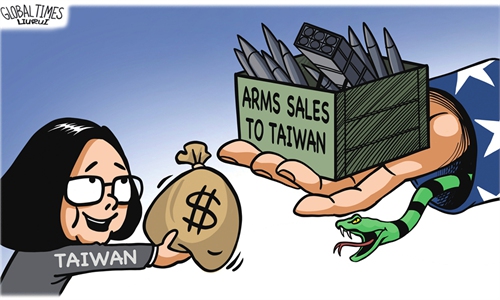US bill to help Taiwan separatists get WHA observer status 'futile'

US Capitol Photo: VCG
The latest US effort to help separatist forces on the island of Taiwan "regain observer status" at the World Health Assembly (WHA), the decision-making body of the WHO, will prove futile again, just like how numerous political stunts pulled by the separatists over the past five years failed to achieve any meaningful results, Chinese experts said on Thursday.
The US House of Representatives passed a bill on Wednesday urging the US State Department to help Taiwan in the matter. The bill, which was introduced by US Senator Bob Menendez and passed in the Senate in August 2021, is expected to be signed by US President Joe Biden, Reuters reported. Menendez visited the island earlier this month, prompting fierce opposition from the Chinese central government.
Though details of the bill remain vague, media reports said the bill directs the US Secretary of State to establish a strategy to help the island obtain observer status at the WHA, which is scheduled next month. The WHA, which is aimed at coordinating global efforts to address public health matters, has become a platform for separatists in Taiwan to stage political stunts in recent years, despite failing to get a WHA ticket for five consecutive years.
While the separatist Taiwan authorities are focused on meaningless political theatrics, the island is facing a severe wave of COVID-19 cases. On Thursday, Taiwan reported 11,353 new locally transmitted COVID-19 cases, breaking the 10,000 mark for the first time since the outbreak.
Taiwan was granted WHA observer status from 2009 to 2016, when it was under the rule of the Kuomintang, which sticks to the 1992 Consensus that contains the one-China principle. But the door was shut down after the secessionist Democratic Progressive Party came into power.
Taiwan's WHA participation in the past was the result of an arrangement jointly made by the mainland and the island through consultations on the basis of adhering to the one-China principle, Xin Qiang, deputy director of the Center for American Studies at Fudan University, told the Global Times on Thursday, adding that Washington has no sway over the matter. "Even if the US objected at that time, Taiwan could still participate," Xin said.
Xin said the Taiwan authorities may offer "payback" such as campaign funds and other political support for the US politicians through organizations, individuals and think tanks. Even if US lawmakers do not benefit directly from their support for Taiwan separatists, their efforts still help shape their own image by being politically correct in the US, Xin added.
Analysts suggested that the US administration might pull some tricks, such as voicing support for Taiwan separatists during WHA speeches, holding meetings with separatists during the WHA and working with allies to put pressure on the WHO.
But that will prove futile too. In May 2021, despite US Secretary of State Antony Blinken's call to the WHO Director-General to invite Taiwan separatists to participate as an observer at the WHA, that did not happen.
WHO spokesperson Margaret Harris said in 2021 that the WHA could invite observers through a resolution or decision adopted by a simple majority of its 194 member states. Unfortunately, the US has only one vote out of 194, analysts pointed out.
Ma Xiaoguang, a spokesperson for the Taiwan Affairs Office of the State Council, said at a press conference on April 13 that the WHO is a UN agency for sovereign states, and Taiwan, as part of China, has no right to join.
Ma further called on the US to abide by the one-China principle and the three China-US Joint Communiqués, and exercise caution in its words and deeds regarding the Taiwan question.




